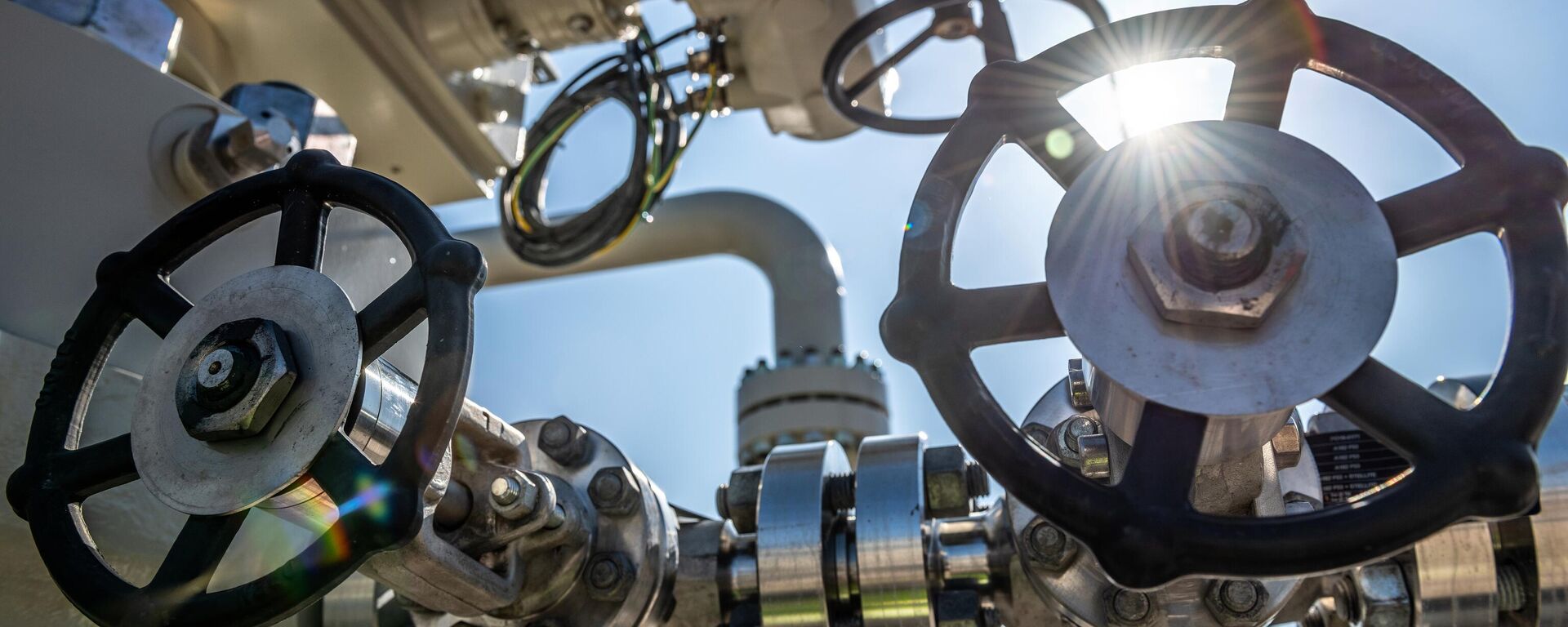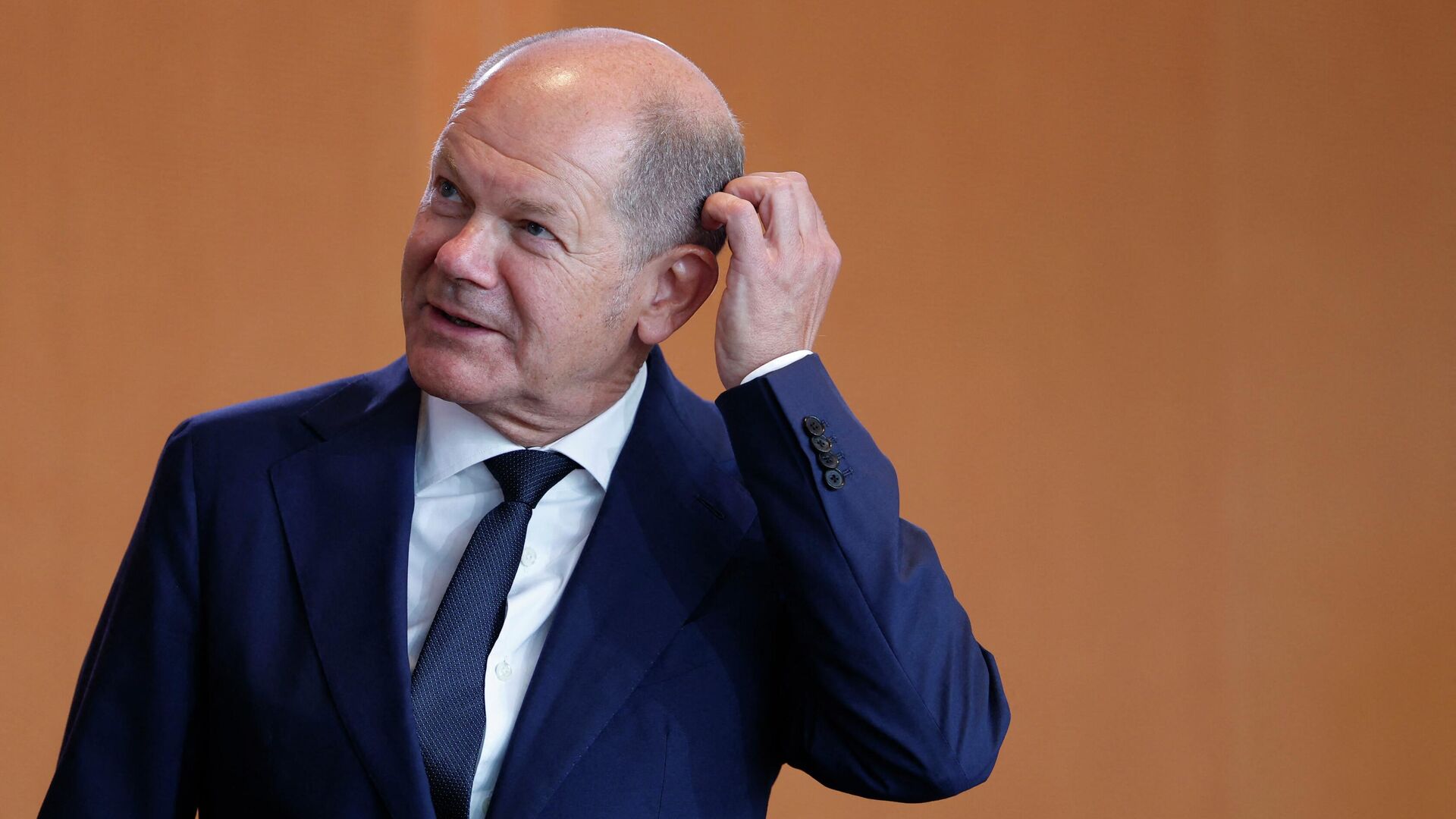https://sputnikglobe.com/20220821/olaf-scholzs-ratings-scrape-rock-bottom-amid-economic-malaise-corruption-allegations-1099817394.html
Olaf Scholz’s Ratings Scrape Rock Bottom Amid Economic Malaise, Corruption Allegations
Olaf Scholz’s Ratings Scrape Rock Bottom Amid Economic Malaise, Corruption Allegations
Sputnik International
Germany is in the middle of a largely self-inflicted energy and inflation crisis amid moves by Berlin, Brussels, and their allies to dramatically reduce or... 21.08.2022, Sputnik International
2022-08-21T09:59+0000
2022-08-21T09:59+0000
2022-08-21T10:17+0000
germany
olaf scholz
poll
rating
https://cdn1.img.sputnikglobe.com/img/07e6/08/13/1099771156_0:76:3368:1971_1920x0_80_0_0_ceef221a22d7aa2198148b8ef56a294f.jpg
Chancellor Olaf Scholz’s approval ratings and those of his "traffic light" coalition have fallen to historic lows, with just 25 percent of Germans satisfied with Scholz’s job performance, and 27 percent satisfied with the work of his government, a poll by INSA, one of Germany’s leading research institutes, has found.62 percent of those polled said they were dissatisfied with Mr. Scholz’s work. 65 percent said they were dissatisfied with the work of the government. The survey, which queried 1,427 people between August 15 and 19, also showed that if new elections were held today, just 18 percent would pick Scholz for chancellor, with 25 percent preferring Economic Minister Robert Habeck and 19 percent going for Friedrich Merz, leader of the opposition Christian Democratic Union (CDU).Scholz and his government have presided over a major economic downturn bordering on recession amid a "perfect storm" of bad news, including soaring energy and food prices, spiking inflation, and a dramatic drop in the availability of Russian oil and gas. The latter were caused by Brussels’ restrictions, sanctions affecting the trans-Baltic Nord Stream 1 pipeline and the geopolitical machinations of Germany’s Polish and Ukrainian partners, which have resulted in the closure of overland pipelines.Last week, a senior German domestic intelligence service official warned that Berlin can expect a “winter of fury” including “violent” protests thanks to the Ukraine crisis, economic woes, and the energy crunch. The official expects demonstrations in a situation of “gas shortages, energy difficulties, supply issues, possibly recession, unemployment, but also growing poverty right down to the middle class.”Scholz and his party are also facing their own scandals, including a police probe into the possible use of date rape drugs at an SPD event, and an investigation into the chancellor’s role in a tax fraud scheme while serving as mayor of Hamburg in the early-to-late 2010s. The CDU has urged Scholz to resign over the tax fraud-related allegations – which reportedly involved banks and investors using a loophole in tax legislation to claim multiple rebates on a single dividend day payout arrangement. Scholz, who testified in the probe on Friday, has stressed repeatedly that he acted appropriately, and that “there has been no political influence” in the matter.
https://sputnikglobe.com/20220812/explosive-mood-germany-expects-winter-of-fury-amid-energy-crisis-and-soaring-inflation-1099510083.html
germany
Sputnik International
feedback@sputniknews.com
+74956456601
MIA „Rossiya Segodnya“
2022
News
en_EN
Sputnik International
feedback@sputniknews.com
+74956456601
MIA „Rossiya Segodnya“
Sputnik International
feedback@sputniknews.com
+74956456601
MIA „Rossiya Segodnya“
germany, olaf scholz, poll, rating
germany, olaf scholz, poll, rating
Olaf Scholz’s Ratings Scrape Rock Bottom Amid Economic Malaise, Corruption Allegations
09:59 GMT 21.08.2022 (Updated: 10:17 GMT 21.08.2022) Germany is in the middle of a largely self-inflicted energy and inflation crisis amid moves by Berlin, Brussels, and their allies to dramatically reduce or outright halt deliveries of Russian energy. On top of that, the chancellor is facing questions over his role in a multi-billion-euro tax fraud scheme during his tenure as mayor of Hamburg.
Chancellor Olaf Scholz’s approval ratings and those of his "traffic light" coalition have fallen to historic lows, with just 25 percent of Germans satisfied with Scholz’s job performance, and 27 percent satisfied with the work of his government, a
poll by INSA, one of Germany’s leading research institutes, has found.
62 percent of those polled said they were dissatisfied with Mr. Scholz’s work. 65 percent said they were dissatisfied with the work of the government. The survey, which queried 1,427 people between August 15 and 19, also showed that if new elections were held today, just 18 percent would pick Scholz for chancellor, with 25 percent preferring Economic Minister Robert Habeck and 19 percent going for Friedrich Merz, leader of the opposition Christian Democratic Union (CDU).
The poll showed that the chancellor’s party, the German Social Democratic Party (SPD), has sunk in the ratings from first place to third since last year’s Bundestag elections, now tracking at 19 percent compared 28 percent support for the CDU and 21 percent for the Greens. The Free Democratic Party, the junior partner in the coalition, also saw its rating fall, from 9 to 8 percent. Altogether, the coalition’s parties now have only 48 percent cumulative support.
Scholz and his government have presided over a major economic downturn bordering on recession amid a
"perfect storm" of bad news, including soaring energy and food prices, spiking inflation, and a dramatic drop in the availability of Russian oil and gas. The latter were caused by Brussels’ restrictions, sanctions affecting the trans-Baltic Nord Stream 1 pipeline and the geopolitical machinations of Germany’s Polish and Ukrainian partners, which have resulted in the closure of overland pipelines.
Last week, a senior German domestic intelligence service official warned that Berlin can expect a “winter of fury” including “violent” protests thanks to the Ukraine crisis, economic woes, and the energy crunch. The official expects demonstrations in a situation of “gas shortages, energy difficulties, supply issues, possibly recession, unemployment, but also growing poverty right down to the middle class.”

12 August 2022, 10:49 GMT
Scholz and his party are also facing their own scandals, including a
police probe into the possible use of date rape drugs at an SPD event, and an investigation into the chancellor’s role in a tax fraud scheme while serving as mayor of Hamburg in the early-to-late 2010s. The CDU has urged Scholz to resign over the tax fraud-related allegations – which reportedly involved banks and investors using a loophole in tax legislation to claim multiple rebates on a single dividend day payout arrangement. Scholz, who testified in the probe on Friday,
has stressed repeatedly that he acted appropriately, and that “there has been no political influence” in the matter.


